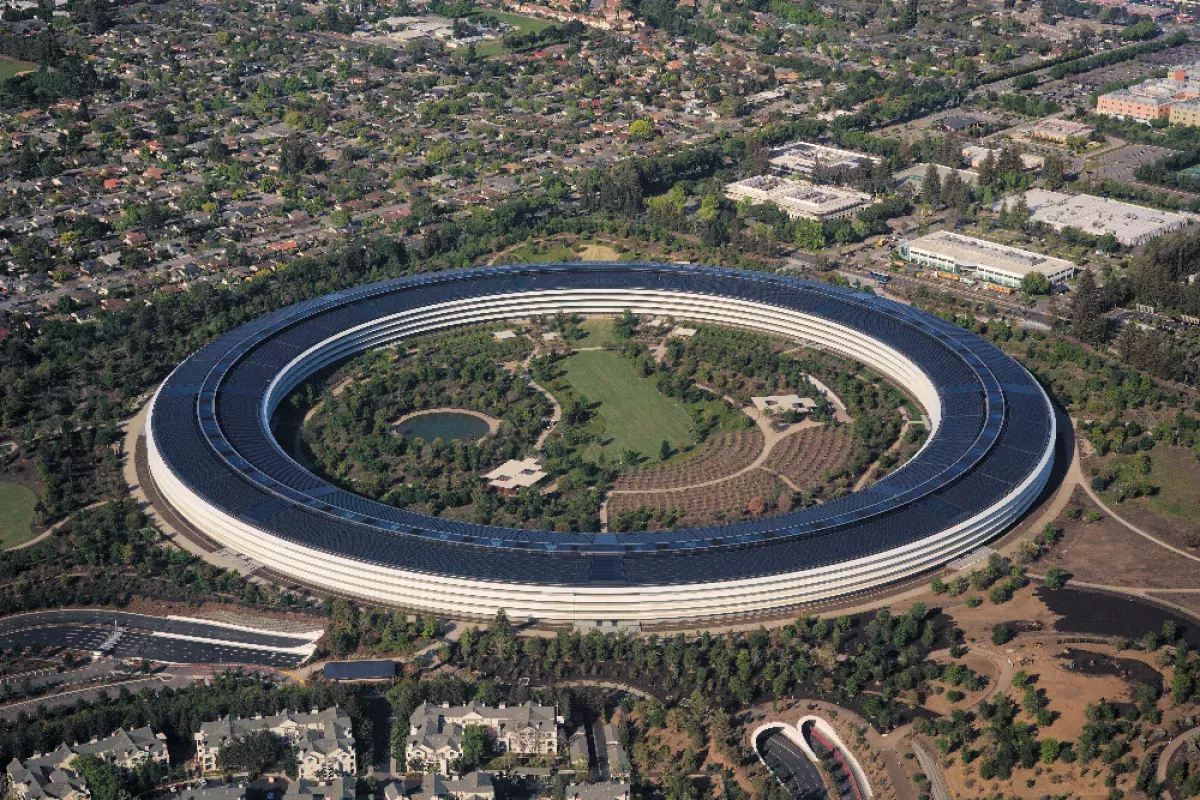Apple Inc., founded in 1976 and headquartered in Cupertino, California, is a multinational technology corporation renowned for its consumer electronics, software, and online services. Originally established as Apple Computer Company by Steve Jobs, Steve Wozniak, and Ronald Wayne, it later transitioned its name to Apple Inc. in 2007 to reflect its broader focus beyond computers. Apple is a key player in the Big Tech landscape, known for its innovative products and significant impact on the technology industry.
1956: Ford Motor Company IPO
In 1980, Apple's IPO generated more capital than any IPO since Ford Motor Company in 1956.
April 1, 1976: Apple Computer Company Founded
On April 1, 1976, Apple Computer Company was founded by Steve Jobs, Steve Wozniak, and Ronald Wayne as a partnership.
July 1976: Wozniak Debuts Apple I at Homebrew Computer Club
In July 1976, Wozniak debuted the first prototype Apple I at the Homebrew Computer Club. It was sold as a motherboard with CPU, RAM, and basic textual-video chips for $666.66.
1976: Apple Computer Company Founded
In 1976, Apple Computer Company was founded by Steve Jobs, Steve Wozniak, and Ronald Wayne in Silicon Valley, California. The company focused on consumer electronics, software, and online services.
January 3, 1977: Apple Computer, Inc. Incorporated
On January 3, 1977, Apple Computer, Inc. was incorporated in Cupertino, California. Ronald Wayne left and sold his share back to Jobs and Wozniak.
April 16, 1977: Apple II Introduced
On April 16, 1977, the Apple II, designed by Wozniak, was introduced at the first West Coast Computer Faire.
September 1977: Apple's Sales Growth
Between September 1977 and September 1980, Apple's yearly sales grew from $775,000 to US$118 million.
1978: Disk II Introduced
In 1978, the 5+1⁄4-inch floppy disk drive and interface called the Disk II superseded audio cassette tapes as storage devices for the Apple II.
December 1979: Apple Employees Visit Xerox PARC
In December 1979, Steve Jobs and Apple employees visited Xerox PARC, observing the Xerox Alto with a GUI and mouse, influencing Apple's future products like the Apple Lisa.
1979: VisiCalc Released for Apple II
In 1979, the Apple II became the desktop platform for VisiCalc, a spreadsheet program which became the first killer application for business, boosting sales.
September 1980: Apple's Sales Reach $118 Million
By September 1980, Apple's yearly sales reached US$118 million, marking an average annual growth rate of 533% since September 1977.
December 12, 1980: Apple Goes Public
On December 12, 1980, Apple went public on the Nasdaq, selling 4.6 million shares at $22 per share, generating over $100 million and creating around 300 millionaires.
January 1981: Jobs Joins the Macintosh Division
In January 1981, Steve Jobs, after being removed from the Lisa team, joined the Macintosh division and redefined the Macintosh as a cheaper graphical system.
1983: Apple Introduces the Lisa
In 1983, Apple introduced the Lisa computer as one of the first to use a graphical user interface and a mouse.
January 22, 1984: Macintosh Launch and "1984" Advertisement
On January 22, 1984, Apple launched the Macintosh and aired the "1984" advertisement during Super Bowl XVIII, a US$1.5 million television advertisement directed by Ridley Scott.
1984: Introduction of the Macintosh in 1984
From the introduction of the Macintosh in 1984, with the 1984 Super Bowl advertisement to the more modern Get a Mac adverts, Apple has been recognized for its efforts toward effective advertising and marketing for its products.
1984: Apple Introduces the Macintosh
In 1984, Apple introduced the Macintosh computer, also featuring a graphical user interface and a mouse.
July 1985: PageMaker Released
In July 1985, Aldus Corporation released PageMaker, an early desktop publishing application. The combination of Macintosh, LaserWriter, and PageMaker is credited with creating the desktop publishing market.
September 1985: Steve Jobs Resigns from Apple
In September 1985, Steve Jobs resigned from Apple and founded NeXT after attempting to oust CEO John Sculley. Wozniak had quit his active employment at Apple earlier in 1985.
1985: Steve Jobs Leaves Apple
In 1985, internal conflicts led to Steve Jobs leaving Apple to form NeXT; John Sculley became CEO.
1985: Jobs Removed from Macintosh Division
In early 1985, a sales slump triggered a power struggle between Steve Jobs and CEO John Sculley, resulting in Sculley removing Jobs as the head of the Macintosh division.
1988: Pink Project and A/UX Introduced
In 1988, Apple initiated the Pink project and introduced A/UX, marking the start of numerous attempts to modernize the Macintosh operating system.
1989: First Decline in Sales
During the Christmas season of 1989, Apple experienced its first decline in sales, which led to a 20% drop in the company's stock price.
1989: Start of First Golden Age
The magazine MacAddict named the period between 1989 and 1991 as the "first golden age" of the Macintosh due to the success of lower-cost Macs and the PowerBook.
January 1990: Gassée Demoted
In January 1990, Sculley demoted Jean-Louis Gassée by appointing Michael Spindler as the chief operating officer. Gassée left Apple later that year to set up a rival, Be Inc.
October 1990: Introduction of Lower-Cost Models
In October 1990, Apple introduced three lower-cost models: the Macintosh Classic, the Macintosh LC, and the Macintosh IIsi, which generated significant sales.
1991: Introduction of PowerBook and System 7
In 1991, Apple introduced the PowerBook, and System 7, a major upgrade to the Macintosh operating system.
1991: End of First Golden Age
The magazine MacAddict named the period between 1989 and 1991 as the "first golden age" of the Macintosh due to the success of lower-cost Macs and the PowerBook.
1993: Apple II Series Discontinued
In 1993, Apple discontinued the Apple II series to avoid absorbing sales from lower-cost Macintosh models.
1993: Sculley Replaced as CEO
In 1993, Sculley was replaced as CEO by Michael Spindler due to major product flops and loss of market share to Windows.
1994: Copland project launched
In 1994, Apple launched the Copland project, which was one of many failed attempts to modernize the Macintosh operating system. The original Macintosh operating system was not built for multitasking.
1994: AIM alliance formation and Power Macintosh introduction
In 1994, Apple, IBM, and Motorola formed the AIM alliance to create a new computing platform called the PowerPC Reference Platform (PReP). Additionally, in 1994, Apple introduced the Power Macintosh, the first computer utilizing Motorola's PowerPC processor.
1996: Evaluation of BeOS purchase
In 1996, Apple evaluated purchasing BeOS as part of their efforts to modernize the Macintosh operating system. However, talks stalled when Be's CEO demanded $300 million, contrasting Apple's $125 million offer. Ultimately, Apple acquired NeXT in late 1996.
1996: Gil Amelio replaces Spindler as CEO
In 1996, Gil Amelio replaced Michael Spindler as CEO of Apple, due to his reputation as a corporate rehabilitator. Amelio implemented significant changes, including extensive layoffs and cost-cutting measures.
1996: Macintosh clone models introduced
In 1996, following the AIM alliance, Apple allowed Motorola and other companies to build Macintosh clones. By 1996, 75 distinct Macintosh clone models were introduced, causing concern among Apple executives about cannibalizing sales of their own high-end computers.
February 9, 1997: NeXT acquisition finalized, Jobs returns as advisor
On February 9, 1997, the acquisition of NeXT was finalized, and Steve Jobs returned to Apple as an advisor.
July 9, 1997: Jobs ousts Amelio, becomes interim CEO
On July 9, 1997, Steve Jobs staged a boardroom coup, leading to Gil Amelio's resignation. Following this, the board appointed Jobs as interim CEO and Jobs subsequently cut 70% of the company's product models.
September 1997: Apple purchases Power Computing
In September 1997, Apple purchased Power Computing, which was the largest Mac clone maker at the time.
November 10, 1997: Apple Store website launched
On November 10, 1997, Apple launched its Apple Store website, which was linked to a build-to-order manufacturing model.
1997: "Think Different" Slogan Used From 1997
From 1997, Apple used the slogan "Think different" in its advertising campaigns, which became closely associated with the brand.
1997: Apple Relaunches Online Store and Revamps Retail Program in 1997
In 1997, Apple relaunched its online store and began efforts to revamp the retail program, aiming for an improved relationship with consumers.
1997: Apple Acquires NeXT, Jobs Returns
In 1997, Apple, nearing bankruptcy, acquired NeXT, bringing Steve Jobs back to the company to overhaul its market strategy.
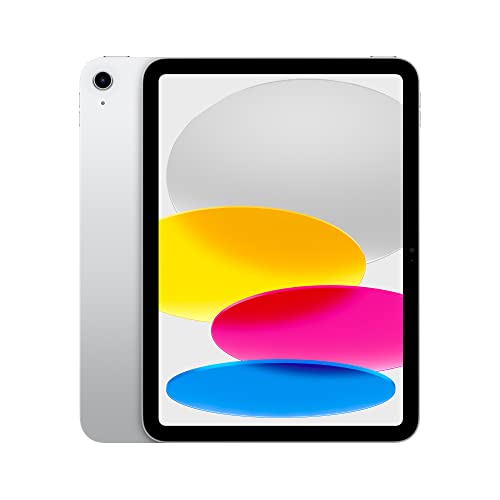
May 6, 1998: iMac introduced
On May 6, 1998, Apple introduced the iMac, a new all-in-one computer reminiscent of the original Macintosh. It sold 800,000 units in its first five months.
1998: Aqua-Themed Monochrome Logo Used From 1998
From 1998, Apple used an Aqua-themed version of its monochromatic logo.
1998: "iThink, therefore iMac" Slogan Used in 1998
In 1998, Apple used the slogan "iThink, therefore iMac" to promote the iMac.
April 1999: Final Cut Pro launched
In April 1999, Apple launched Final Cut Pro, which was based on the acquired Key Grip digital video editing software project from Macromedia.
July 21, 1999: iBook consumer laptop introduced
On July 21, 1999, Apple introduced the iBook consumer laptop, part of Steve Jobs's strategy to produce only four key products.
August 27, 1999: Apple Drops Rainbow Logo for Monochromatic Logos in 1999
On August 27, 1999, Apple officially discontinued the use of the rainbow-colored logo and transitioned to monochromatic logos that were nearly identical in shape to the previous design.
October 1999: iMovie released
In October 1999, Apple released iMovie, a consumer video-editing product that came about as a result of the development of Key Grip.
1999: Macintosh Name Shortened to Mac in 1999
In 1999, Apple officially shortened the name of its personal computer line from Macintosh to Mac.
April 2000: Astarte acquired
In April 2000, Apple acquired Astarte, a German company that developed the DVD authoring software DVDirector, later repackaged as DVD Studio Pro and iDVD.
March 24, 2001: Mac OS X released
On March 24, 2001, Apple released Mac OS X, a new modern operating system based on NeXTSTEP, OpenStep, and BSD Unix.
May 2001: First Apple Store retail locations opened
In May 2001, Apple opened its first two Apple Store retail locations in Virginia and California.
May 2001: First Apple Stores Opened in May 2001
In May 2001, the first two Apple Stores were opened by CEO Steve Jobs, marking a significant shift towards improved retail presentation and consumer relationships.
October 23, 2001: iPod debuted
On October 23, 2001, Apple debuted the iPod portable digital audio player. It was first sold on November 10, 2001, and became a major success.
2001: Introduction of the iPod in 2001
In 2001, Apple expanded its product line beyond computers to include portable devices, starting with the introduction of the iPod.
2002: "Think Different" Slogan Used Until 2002
Apple used the slogan "Think different" in its advertising campaigns until 2002.
2002: Acquisitions of Nothing Real and Emagic, iLife suite completed
In 2002, Apple purchased Nothing Real for Shake and Emagic for Logic. The purchase of Emagic made Apple the first computer manufacturer to own a music software company. In 2002, the release of iPhoto completed the iLife suite.
2003: Aqua-Themed Monochrome Logo Used Until 2003
Apple used the Aqua-themed version of the monochromatic logo until 2003.
2003: Stock price increase
Between early 2003 and 2006, the price of Apple's stock increased more than tenfold.
2003: iTunes Store introduced
In 2003, the iTunes Store was introduced, allowing music downloads for 99¢ a song and integrated with the iPod. It quickly became a market leader.
2005: Criticism of 2005 Power Mac Ads
Claims made by Apple's advertising campaigns, particularly the 2005 Power Mac ads, were subject to criticism.
2005: Collusion Began in 2005
The abuses discovered started around 2005.
January 10, 2006: New MacBook Pro and iMac launched with Intel Core Duo CPU
On January 10, 2006, the new MacBook Pro and iMac became the first Apple computers to use Intel's Core Duo CPU.

January 2006: Apple surpasses Dell's market cap
In January 2006, Apple surpassed Dell's market capitalization, prompting Steve Jobs to send an email to Apple employees referencing Michael Dell's previous comments.
August 7, 2006: Apple completes transition to Intel chips for Mac product line
By August 7, 2006, Apple completed the transition to Intel chips for the entire Mac product line, over one year ahead of schedule. The Power Mac, iBook, and PowerBook brands were retired, and the Mac Pro, MacBook, and MacBook Pro became their successors.

January 9, 2007: Apple Computer, Inc. renamed to Apple Inc., iPhone and Apple TV announced
On January 9, 2007, at the Macworld Expo, Apple Computer, Inc. was renamed to Apple Inc. to reflect the company's broader focus on consumer electronics. Additionally, the iPhone and Apple TV were announced at this event.
February 6, 2007: Jobs announces willingness to sell music without DRM
On February 6, 2007, Steve Jobs wrote that Apple would be willing to sell music on the iTunes Store without digital rights management if record labels agreed.
April 2, 2007: Apple and EMI announce removal of DRM
On April 2, 2007, Apple and EMI jointly announced the removal of DRM technology from EMI's catalog in the iTunes Store, effective in May 2007.
May 2007: EMI and Apple jointly announce DRM removal
Effective May 2007, Apple and EMI jointly announced the removal of DRM technology from EMI's catalog in the iTunes Store.
June 2007: Apple Replaces CCFL Backlit LCD Displays
In June 2007, Apple began replacing the cold cathode fluorescent lamp (CCFL) backlit LCD displays in its computers with mercury-free LED-backlit LCD displays and arsenic-free glass, starting with the upgraded MacBook Pro.

2007: Apple Computer, Inc. Renamed to Apple Inc.
In 2007, Apple Computer, Inc. was renamed to Apple Inc. This change reflected the company's expanded focus from computers to consumer electronics.
2007: Introduction of the iPhone in 2007
In 2007, Apple introduced the iPhone, further expanding its product categories into portable devices.
May 2008: Climate Counts Gives Apple a Low Score
In May 2008, Climate Counts gave Apple only 11 points out of 100, placing the company last among electronics companies.
June 19, 2008: iTunes Store surpasses 5 billion downloads
By June 19, 2008, the iTunes Store had surpassed 5 billion downloads, becoming the market leader in online music services.
July 2008: App Store launched
In July 2008, Apple launched the App Store to sell third-party applications for the iPhone and iPod Touch.
August 2008: Speculation that the App Store could become a billion-dollar business for Apple
In August 2008, Steve Jobs speculated that the App Store could become a billion-dollar business for Apple.
October 2008: Apple becomes third-largest mobile handset supplier
By October 2008, Apple had become the third-largest mobile handset supplier in the world, driven by the popularity of the iPhone.
2008: Apple Eliminates PVC and BFRs in Product Line
Following campaigns by Greenpeace, in 2008, Apple became the first electronics manufacturer to eliminate all polyvinyl chloride (PVC) and brominated flame retardants (BFRs) in its complete product line.
2008: Apple Named Most Admired Company in the U.S. in 2008
In 2008, Fortune magazine recognized Apple as the most admired company in the United States.
January 14, 2009: Jobs announces medical leave of absence
On January 14, 2009, Steve Jobs announced that he would be taking a six-month medical leave of absence from Apple to focus on his health.
January 2009: DRM removal on the iTunes Store
In January 2009, Apple announced that all songs on the iTunes Store were available without FairPlay DRM.
June 2009: iPhone 3GS Free of PVC, Arsenic, and BFRs
In June 2009, Apple's iPhone 3GS was free of PVC, arsenic, and BFRs.
June 2009: End of Jobs' medical leave
In June 2009, Steve Jobs' six-month medical leave of absence from Apple ended.
January 27, 2010: iPad unveiled
On January 27, 2010, Apple unveiled the iPad, a large-screen, tablet-like media device.

April 3, 2010: iPad launched in the U.S.
On April 3, 2010, the iPad was launched in the U.S., selling over 300,000 units on its first day.

June 2010: iPhone 4 released
In June 2010, Apple released the iPhone 4, which introduced video calling via FaceTime, multitasking, and a new design.
2010: Introduction of the iPad in 2010
In 2010, Apple continued its expansion into portable devices with the introduction of the iPad.

2010: Climate Counts Gives Apple a 'Striding' Score
In 2010, Climate Counts gave Apple a score of 52 points out of 100, putting Apple in their top category "Striding."
January 17, 2011: Jobs announces another medical leave of absence
On January 17, 2011, Steve Jobs announced another medical leave of absence for an indefinite period, with Tim Cook assuming day-to-day operations.
June 2011: iCloud unveiled
In June 2011, Steve Jobs unveiled iCloud, an online storage and syncing service, which replaced MobileMe.
November 2011: Apple Featured in Greenpeace's Guide to Greener Electronics
In November 2011, Apple was featured in Greenpeace's Guide to Greener Electronics, ranking fourth of fifteen electronics companies.
2011: Apple Store Sales Over $16 Billion Globally in 2011
In 2011, Apple Stores generated over $16 billion in global sales, solidifying their position among top-tier retail stores.
2011: Apple's Profit Margins in 2011
In 2011, Apple's profit margins reached 40 percent, significantly higher than the 10 to 20 percent profit margins of most other hardware companies. Tim Cook described his focus on the company's operational arm with the saying "Nobody wants to buy sour milk."
2011: Steve Jobs Resigns as CEO
In 2011, Steve Jobs resigned as CEO of Apple for health reasons and died two months later; Tim Cook succeeded him.
2011: Apple's Market Position
Since 2011, Apple has been the world's largest company by market capitalization for the most part.
January 2012: Apple Requests Halogen-Free Cables
In January 2012, Apple requested that its cable maker, Volex, begin producing halogen-free USB and power cables.
April 17, 2012: Apple Commits to 100% Renewable Energy
On April 17, 2012, Apple released a statement committing to ending its use of coal and shifting to 100% renewable clean energy following a Greenpeace protest.
July 2012: Tim Cook comments on India market
In July 2012, during a conference call with investors, CEO Tim Cook expressed his affection for India but noted that Apple saw larger opportunities outside the region, citing India's requirement that 30% of products sold be manufactured in the country, which "really adds cost to getting product to market".
October 30, 2012: Research on multinational companies' tax practices
On October 30, 2012, British MP Charlie Elphicke published research showing that some multinational companies, including Apple Inc., were making billions in the UK but paying only a 3% effective tax rate, and called for greater tax transparency.
November 2012: Apple Donates to American Red Cross for Hurricane Sandy Relief
In November 2012, Apple donated $2.5 million to the American Red Cross to aid relief efforts after Hurricane Sandy.
2012: Apple Named Most Admired Company in the World From 2008 to 2012
From 2008 to 2012, Fortune magazine consistently named Apple the most admired company in the world.
2012: Collusion First Discovered After Complaint by eBizcuss in 2012
In 2012, an independent reseller eBizcuss, first discovered the abuses.
May 2013: US Senate Report on Apple's Offshore Tax Structure
In May 2013, a US Senate report concluded that Apple has held billions of dollars in profits in Irish subsidiaries to pay little or no taxes to any government.
May 21, 2013: Tim Cook Defends Apple's Tax Tactics
On May 21, 2013, Apple CEO Tim Cook defended the company's tax practices at a Senate hearing following a report that Apple held billions in Irish subsidiaries to avoid taxes.
November 2013: Apple Encourages Donations for Typhoon Haiyan Relief
In November 2013, Apple used its iTunes platform to encourage donations for the Typhoon Haiyan relief efforts in the Philippines.
2013: Glass-Themed Logo Used Until 2013
Apple used the glass-themed version of the monochromatic logo until 2013.
2013: Apple Powers Data Centers with 100% Renewable Energy
By 2013, Apple was using 100% renewable energy to power their data centers, and overall, 75% of the company's power came from clean renewable sources.
November 2014: App Store Revenue Donated to Product Red
In November 2014, Apple arranged for all App Store revenue in a two-week period to go to the Product Red fundraiser, generating more than US$20 million.
2014: Jonathan Ive Comments on Apple's Brand Fanaticism in 2014
In 2014, Jonathan Ive claimed that "people have an incredibly personal relationship" with Apple's products, highlighting the strong connection many users feel with the brand.
2014: iOS 8 Encrypts Device Contents in 2014
With the release of iOS 8 in 2014, Apple began encrypting all contents of iOS devices using user passcodes, preventing the company from providing customer data to law enforcement.
January 2015: UL's Zero Waste to Landfill Validation Standard Started
In January 2015, the UL's Zero Waste to Landfill validation standard started. It certifies that all manufacturing waste is reused, recycled, composted, or converted into energy.
May 2015: Greenpeace Commends Apple on Environmental Practices
In May 2015, Greenpeace commended Apple on their environmental practices saying, "Apple's commitment to renewable energy has helped set a new bar for the industry".
2015: Apple Leases Electronic Computer Manufacturing Facility
In 2015, Apple leased an electronic computer manufacturing facility in Santa Clara, California, code named Aria.
2015: Apple Encourages Donations for the European Migrant Crisis
In 2015, Apple used its iTunes platform to encourage donations for the European migrant crisis.
2015: Apple's Water Usage
In 2015, Apple's increased activity in retail, corporate and data centers increased the amount of water use to 573 million gallons.
February 2016: Apple Issues $1.5 Billion Green Bond
In February 2016, Apple issued a US$1.5 billion green bond (climate bond), the first ever of its kind by a U.S. tech company.
March 2016: Apple's Renewable Energy Usage
As of March 2016, Lisa P. Jackson announced that 93% of Apple's worldwide operations are powered with renewable energy.
March 21, 2016: Apple Provides Update on Renewable Energy Initiative
On March 21, 2016, Apple provided an update on its environmental initiative to be 100% renewable in all of its worldwide operations.
May 2016: Significant Redesign of Apple Stores Began in May 2016
In May 2016, Apple Stores underwent a significant redesign, including physical and functional changes to enhance interaction between consumers and professionals.
June 6, 2016: Apple's Solar Farms Capacity Declared
As of June 6, 2016, Apple's solar farms in California and Nevada have been declared to provide 217.9 megawatts of solar generation capacity.
2016: Apple States Renewable Energy Usage
As of 2016, Apple states that 100% of its U.S. operations and data centers run on renewable energy and 93% of Apple's global operations run on renewable energy.
2016: Deep Learning Scans for Facial Data in Photos in 2016
In 2016, Apple began using deep learning scans for facial data in photos on user's local devices and encrypting the content before uploading it to iCloud.
2016: European Commission Claims Illegal State Aid
In 2016, the European Commission claimed that Apple's use of a hybrid Double Irish tax arrangement constituted "illegal state aid" from Ireland, and ordered Apple to pay 13 billion euros in unpaid taxes.
March 2017: Release of iPhone 7 (Product)Red
In March 2017, Apple released a (Product)Red version of the iPhone 7.
May 2017: Apple Announces $1 Billion Funding Project for Advanced Manufacturing
In May 2017, Apple announced a $1 billion funding project for "advanced manufacturing" in the United States. They also invested $200 million in Corning Inc., a manufacturer of toughened Gorilla Glass used in Apple's iPhones.
October 2017: Tim Cook Claims Apple is the Biggest Taxpayer Worldwide
In October 2017, Tim Cook stated in an interview with the German newspaper FAZ that Apple was the biggest taxpayer worldwide.
December 2017: 499 Apple Stores Across 22 Countries in December 2017
As of December 2017, Apple had expanded its retail presence to 499 stores across 22 countries worldwide.
2017: Collusion Continued Until 2017
The collusions continued until 2017.
2018: Apple Develops MicroLED Screens Under Code Name T159
According to a report from Bloomberg in 2018, the Aria facility is used to develop microLED screens under the code name T159.
2018: Apple's Valuation at $1 Trillion
In 2018, Apple became the first publicly traded U.S. company to be valued at over $1 trillion.
2018: Apple Repatriates $285 Billion to the United States
In 2018, Apple repatriated $285 billion to the United States, resulting in a $38 billion tax payment spread over the following eight years.
2018: Lens Technology to Power Glass Production with 100% Renewable Energy
In 2018, Lens Technology committed to power all its glass production for Apple with 100 percent renewable energy.
April 2019: Apple Starts Manufacturing iPhone 7 in India
In April 2019, Apple initiated manufacturing of the iPhone 7 at its Bengaluru facility, targeting local customer demand while seeking more incentives from the Indian government.
2019: Apple Announces Expansion of Service Revenues in 2019
In 2019, Apple announced its intention to focus on expanding its service revenues, signaling a shift in strategy.
2019: Apple Named in Forced Labor Lawsuit
In 2019, Apple was named as a defendant in a lawsuit by Congolese families alleging forced labor and child slavery in cobalt mines owned by Glencore and Zhejiang Huayou Cobalt, which supply battery materials to Apple and other companies.
March 16, 2020: France Fines Apple for Collusion on March 16, 2020
On March 16, 2020, France fined Apple €1.1 billion for colluding with wholesalers to stifle competition and maintain high prices for Apple products like iPads and personal computers, affecting about half of the French retail market.

July 21, 2020: Apple Announces Plan to Become Carbon Neutral by 2030
On July 21, 2020, Apple announced its plan to become carbon neutral across its entire business, manufacturing supply chain, and product life cycle by 2030.
August 13, 2020: Epic Games Sues Apple and Google on August 13, 2020
On August 13, 2020, Epic Games sued Apple and Google after their game Fortnite was removed from the App Store and Google Play due to the implementation of a direct payment system bypassing the imposed fees.
September 2020: Coalition for App Fairness Founded in September 2020
In September 2020, Epic Games, along with thirteen other companies, established the Coalition for App Fairness, aiming to improve conditions for app inclusion in app stores.
September 2020: Apple Sells More Than 500 Million iPads in September 2020
As of September 2020, Apple had sold over 500 million iPads.

December 2020: Facebook Agrees to Assist Epic in Legal Battle Against Apple in December 2020
In December 2020, Facebook agreed to provide materials and documents to support Epic Games in its legal case against Apple, although Facebook chose not to directly participate in the lawsuit.
2020: Apple Donates Masks to Health Workers During COVID-19 Pandemic
During the COVID-19 pandemic in 2020, Apple's CEO Cook announced that the company will be donating "millions" of masks to health workers in the United States and Europe.
January 2021: 1.65 Billion Apple Products in Active Use in January 2021
As of January 2021, there were 1.65 billion Apple products actively in use worldwide.
2021: Apple's Global Workforce and Supply Chain in 2021
As of 2021, Apple directly employs 147,000 workers, including 25,000 corporate employees in Apple Park and across Silicon Valley. Apple relies on a larger, outsourced workforce for manufacturing, particularly in China and uses hardware components from 43 different countries.
2021: Apple Donations to Product Red Exceed $250 Million
As of 2021, Apple has donated over $250 million to Product Red.
2021: Epic vs. Apple Trial in 2021
Facebook committed to helping with the discovery of evidence relating to the trial of 2021.
2021: Apple Together solidarity union
In 2021, Apple Together, a solidarity union, sought to bring together the company's global worker organizations.
March 30, 2022: Apple provides data to hackers posing as law enforcement officials
On March 30, 2022, Bloomberg News reported that Apple provided data, including phone numbers, physical addresses, and IP addresses, to hackers who posed as law enforcement officials using forged documents. The law enforcement requests sometimes included forged signatures of real or fictional officials.
September 3, 2022: Stock Splits Adjustment
As of September 3, 2022, Apple's initial public offering price of $22 per share in 1980 adjusts to $.10 per share when accounting for stock splits.
February 2023: Over 2 Billion Apple Devices in Use in February 2023
In February 2023, the number of Apple devices in active use exceeded 2 billion worldwide.
August 2023: EPA Inspects Apple's Facility Due to Waste Mistreatment Tip
In August 2023, the EPA inspected Apple's Aria facility due to a tip from a former employee regarding potential mistreatment of waste.
2023: Over 2 Billion Apple Devices in Use in 2023
As of 2023, there are over 2 billion Apple devices actively being used worldwide.
April 2024: DRC Notifies Apple of Potential Conflict Mineral Sourcing
In April 2024, lawyers representing the Democratic Republic of the Congo notified Apple of evidence suggesting that Apple may be sourcing minerals from conflict areas of eastern Congo.
June 2024: EPA Report on Apple's Electronic Computer Manufacturing Facility
In June 2024, the United States Environmental Protection Agency (EPA) published a report about an electronic computer manufacturing facility leased by Apple in 2015 in Santa Clara, California, code named Aria, stating that Apple was potentially in violation of federal regulations under the Resource Conservation and Recovery Act (RCRA).
June 2024: Apple valued at just over $3.2 trillion
As of June 2024, Apple is valued at just over $3.2 trillion.
June 24, 2024: European Commission accuses Apple of violating Digital Markets Act
On June 24, 2024, the European Commission accused Apple of violating the Digital Markets Act by preventing "app developers from freely steering consumers to alternative channels for offers and content".
December 2024: DRC Sues Apple over Conflict Minerals
In December 2024, the Democratic Republic of the Congo (DRC) filed a lawsuit against Apple's European subsidiaries, accusing them of using conflict minerals. Apple responded by strongly disputing the allegations and affirming its commitment to responsible sourcing.
2024: Apple's Market Position in 2024
As of 2024, Apple is the largest manufacturing company by revenue, the fourth-largest personal computer vendor, the largest vendor of tablet computers, and the largest vendor of mobile phones.
2024: "Wearables, Home and Accessories" Comprise Ten Percent of Apple's Revenue in 2024
As of the end of 2024, Apple's "Wearables, Home and Accessories" category accounted for approximately ten percent of the company's revenue.

2024: Personal Computers Account for Eight Percent of Apple's Revenue in 2024
As of the end of 2024, personal computers accounted for approximately eight percent of Apple's total revenue.
2024: iPad Accounts for Seven Percent of Apple's Revenue in 2024
As of the end of 2024, the iPad accounted for seven percent of Apple's total revenue.

2024: iPhone Accounts for Nearly Half of Apple's Revenue in 2024
As of the end of 2024, the iPhone accounted for nearly half of Apple's total revenue, solidifying its position as a major profit driver for the company.
2024: Equivalent Value in 2024
In 1976, Jobs and Wozniak earned $1,300 selling a Volkswagen Bus and an HP-65 calculator, respectively, equivalent to $7,200 in 2024. The Apple I was priced soon after debut for $666.66 equivalent to $3,700 in 2024.
2024: Macintosh Price Equivalent in 2024
In 1984, Steve Jobs aspired to a projected price point of $1,000 for the Macintosh, equivalent to $3,000 in 2024.
2024: Apple Ranked No. 3 in the World on the 2024 Fortune 500 List
In 2024, Apple was ranked as the No. 3 company in the world on the Fortune 500 list.
September 2025: Apple's Valuation in September 2025
As of September 2025, Apple is valued at just over $3.47 trillion.
2025: Challenges for Apple in 2025
In 2025, Apple faced several significant challenges including a decline in stock value, antitrust investigations, legal disputes involving the App Store, increased competition in AI, high-profile departures, and political tensions related to domestic manufacturing of iPhones. Despite growth in the services sector and the launch of new products such as the iPhone 16e and M4 MacBook Air, 2025 was one of the most difficult years for CEO Tim Cook.
2030: Target year for Apple to become carbon neutral
By 2030, Apple aims to achieve carbon neutrality across its entire business, manufacturing supply chain, and product life cycle.
Mentioned in this timeline

Epic Games founded by Tim Sweeney as Potomac Computer Systems...

Oprah Winfrey is an influential American talk show host television...

Coca-Cola is a globally recognized cola soft drink produced by...

Dr Dre born Andre Romell Young is an influential American...
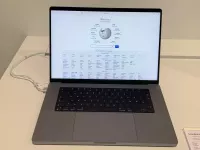
The MacBook Pro is Apple's high-end Mac laptop introduced in...
Facebook is a social media and networking service created in...
Trending
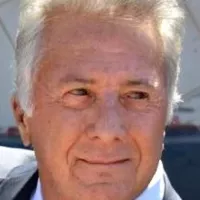
16 minutes ago Dustin Hoffman joins Adam Sandler in Netflix's 'Time Out' remake cast.

16 minutes ago Peggy Fleming's 1968 Olympic Gold: A Nation's Hope and Skating Legend Revisited.
1 hour ago Cody Rhodes Faces Jacob Fatu, Sami Zayn in Elimination Chamber Qualifier on SmackDown
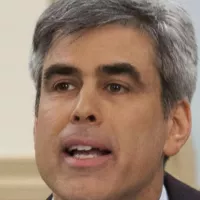
1 hour ago Jonathan Haidt warns of social media's impact; Experts debate online regulation for kids.

2 hours ago Minnesota 2026 Poll: Democrats Ahead, Tafoya's Party Trails, Lindell's Chances Assessed

2 hours ago Nate Bargatze to receive 2026 NAB Television Chairman's Award for comedy.
Popular

Kid Rock born Robert James Ritchie is an American musician...
The Winter Olympic Games a major international multi-sport event held...

Pam Bondi is an American attorney lobbyist and politician currently...

Barack Obama the th U S President - was the...

XXXTentacion born Jahseh Dwayne Ricardo Onfroy was a controversial yet...

Michelle Obama is an American attorney author and former First...
